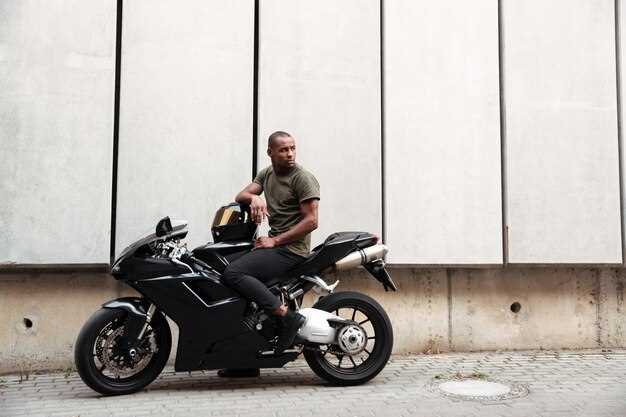
Choosing the right motorcycle can be a daunting task for beginners. With so many options available, it becomes essential to identify starter bikes that cater to new riders’ needs. In 2025, several models stand out as the best choices for those embarking on their motorcycling journey, combining ease of handling, essential features, and appealing aesthetics.
The ideal motorcycles for novices should offer a balance between performance and comfort while being forgiving enough for those just starting out. These bikes are designed to build confidence and skills without overwhelming new riders. In this article, we will explore the top starter motorcycles of 2025, providing insights into their specifications, user-friendliness, and why they are perfect for beginners.
As we delve into this curated list, we aim to equip aspiring motorcyclists with the knowledge needed to make an informed decision. Whether you dream of cruising along scenic highways or navigating city streets, the right motorcycle can make all the difference in your riding experience. Get ready to discover the top choices that await in 2025!
Choosing the Right Engine Size for New Riders
When selecting a motorcycle, one of the most critical factors for beginners is the engine size. Engine displacement, typically measured in cubic centimeters (cc), significantly influences a bike’s performance, handling, and overall riding experience. New riders should consider several aspects to make an informed choice.
Power and Torque: Smaller engines, generally in the range of 250cc to 500cc, provide adequate power for novice riders. These bikes offer enough torque to maintain a safe pace without overwhelming the rider. As a beginner, it’s essential to learn the basics of motorcycle control without dealing with excessive power that can lead to loss of confidence or mishaps.
Weight Consideration: Lightweight motorcycles usually accompany smaller engines. A bike’s overall weight affects maneuverability, especially for new riders who may not yet be accustomed to handling heavier machines. A lighter bike allows for easier navigation, making it simpler to execute turns and maintain stability when stopping.
Comfort and Confidence: Beginners often benefit from motorcycles that provide a comfortable riding position. A bike with an appropriate engine size can enhance overall confidence on the road. Beginners should focus not only on power but also on how the motorcycle feels during rides, ensuring that they can handle it comfortably.
Future Growth: While starting with a smaller engine can be optimal, new riders should also consider their long-term riding plans. If there are aspirations to ride longer distances or explore different terrains, selecting a motorcycle that allows for gradual progression in engine size may be wise. This approach facilitates skill development without the stress of immediately transitioning to a powerful bike.
In conclusion, when choosing a motorcycle for new riders, focusing on the right engine size is crucial. By understanding the balance between power, weight, comfort, and personal growth, beginners can select a bike that maximizes enjoyment and fosters their skills on the road.
Key Features to Look for in Beginner Bikes

When selecting a motorcycle as a starter, it is crucial to consider specific features that ensure safety and ease of handling for beginners. First and foremost, weight plays a vital role; lighter motorcycles are easier to maneuver, making them ideal for new riders who may not yet be confident in their balancing skills.
Engine size is another important factor; motorcycles with smaller displacement engines typically offer less power and acceleration, which can help beginners develop their riding skills without the risk of overwhelming speed. A bike with an engine size between 250cc to 500cc is often recommended for those starting their riding journey.
Another feature to look for in beginner motorcycles is a comfortable riding position. Bikes designed with an upright seating position can reduce fatigue and provide better visibility, allowing new riders to feel more at ease during their training. Additionally, adjustable handlebars and seats can further enhance comfort and fit for different body types.
Suspension quality is also essential; a motorcycle with a good suspension system will offer a smoother ride, providing better handling, particularly on uneven surfaces. This attribute is crucial for building confidence in new riders as they learn to navigate various road conditions.
Safety features such as anti-lock braking systems (ABS) can make a significant difference in a beginner’s riding experience. ABS helps prevent wheel lock-up during sudden stops, offering enhanced control and stability. Additionally, bikes that incorporate advanced safety technologies can further increase rider confidence when learning how to operate a motorcycle.
Finally, the availability of aftermarket support should not be overlooked. Beginner motorcycles that have a strong community and ample aftermarket accessories can make it easier for new riders to customize their bikes and enhance their learning experience. A supportive rider community can also provide vital advice and encouragement during the initial phases of riding.
Comparing Cost and Maintenance for Starter Motorcycles

When considering starter motorcycles, understanding the associated costs and maintenance requirements is crucial. The price of starter bikes can vary significantly based on the brand, model, and specifications. Generally, entry-level motorcycles range from $3,000 to $7,000, making them accessible for new riders. Brands like Honda, Yamaha, and Kawasaki offer competitive pricing for their starter options, ensuring a wide selection for beginners.
In addition to the purchase price, beginners should consider ongoing maintenance costs. Starter motorcycles typically have lower maintenance expenses compared to high-performance bikes. Routine services such as oil changes, tire replacements, and chain adjustments are relatively inexpensive and manageable for new riders. It’s advisable to choose models known for their reliability and low service costs. Bikes like the Honda Rebel 500 or the Kawasaki Z400 are praised for their minimal upkeep and user-friendly maintenance schedules.
Insurance is another important factor that can impact the overall cost of owning a starter motorcycle. Premiums for beginner bikes are typically lower than those for larger, more powerful motorcycles. However, it’s essential to shop around for insurance quotes to find the best coverage that suits your budget and needs.
Overall, while the initial investment in starter motorcycles may seem daunting, the combination of lower purchase prices, manageable maintenance costs, and affordable insurance options makes these bikes an excellent choice for novice riders. By carefully analyzing these factors, beginners can make informed decisions that lead to a satisfying riding experience.











